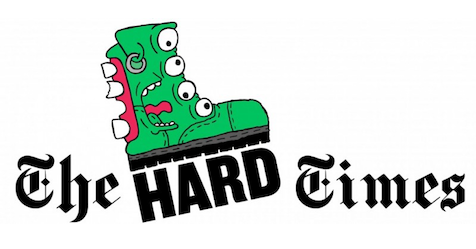WASHINGTON — FBI Agent Raymond Kesler is desperately hoping to avoid assignment to the Bureau’s newly formed TikTok surveillance unit, which would involve following users on the social media platform’s claims of subterfuge.
“Please, God, don’t make me do this,” murmured the veteran intelligence specialist, deliberately avoiding eye-contact as his boss walked by. “I know the kids on TikTok are getting political now, and someone has to monitor their activity and dampen their activism, but please don’t let it be me. If I have to spend my days combing through hours of dance videos, half-assed pranks, and the least funny people on the planet doing impressions, I don’t know what I’m going to do. I’d rather watch terrorist beheadings.”
Kesler’s sentiments are not uncommon within the department, according to Deputy Director Donna Mell, who is in charge of compiling the roster for the special TikTok unit.
“Nobody wants to go anywhere near this one,” said Mell. “I’ve got guys who have gone undercover in the mob, assassinated politicians, and spent the night in Area 51 with nothing more than a flashlight, and they’re terrified at the thought of monitoring TikTok. All week they’ve been bringing me coffee and offering to do my paperwork because they know I’m the one who decides if they’ll spend the rest of their career writing pro-capitalist comments on a 12-year-old’s lip sync video.”
TikTok may be a new issue for the FBI, but former agent Gary McCloskey noted that surveilling internet culture has been an undesirable assignment in the Bureau for decades.
“Back in the ’90s, we had to patrol thousands of message boards, scanning obscure music discussions and ‘X-Files’ forums for anything suspicious. And it was hard work — kids were coming up with slang terms and acronyms faster than our linguistics team could decipher them,” McCloskey recalled. “Then I got shipped over to the YouTube unit and spent a decade analyzing teen culture for radical elements. It was miserable. The fact that I even know what the ‘cinnamon challenge’ is makes me question why I ever got into this business in the first place.”
At press time, after learning that he had officially been chosen for the TikTok task force, Agent Kesler hastily began making copies of classified documents that he could trade to the Russians in exchange for asylum.




